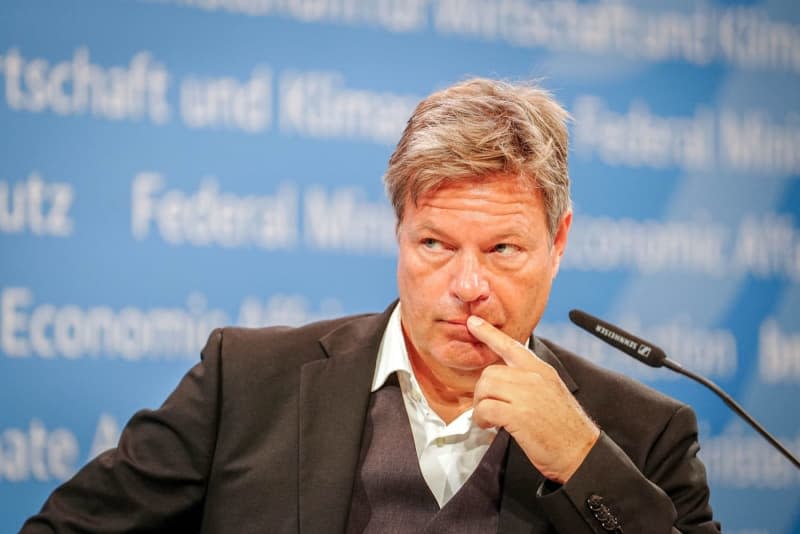CashNews.co

German Economy Minister Robert Habeck on Monday admitted that the country’s economy is performing poorly, as a report suggested a new government forecast expects gross domestic product (GDP) to decline in 2024.
Habeck said in Berlin that economic data was being adjusted “downwards,” appearing to confirm a report by the Süddeutsche Zeitung newspaper that GDP is now expected to drop 0.2% for the year, down from previous estimates of a 0.3% increase.
The minister is due to present the figures, which also include a forecast of 1.1% growth for 2025, on Wednesday.
Habeck said the coalition government’s growth initiative would provide a stimulus to the German economy, but the proposal still requires approval from the German parliament.
“The German government’s growth initiative is a first step towards enabling an upturn, but we have to build on it,” German Finance Minister Christian Lindner said on Monday.
“The German economy is treading water. We cannot be satisfied with the economic development. We have a structural change that is combined with a loss of competitiveness,” he added.
The German finance minister was speaking ahead of a meeting of eurozone finance ministers in Luxembourg to discuss the European Union’s economic growth and competitiveness.
The German finance minister was speaking ahead of a meeting of eurozone finance ministers in Luxembourg to discuss the European Union’s economic growth and competitiveness.
Germany’s economy, while struggling, is the largest in the EU – but it has struggled to cope with the economic fallout of the Ukraine war, changing trade patterns with China and high energy costs.
These problems have created a drag on the wider EU economy. The German coalition government has laboured to get the country’s economic performance back on track amid poor polling.
The German government’s growth initiative includes new rules on tax write-offs for companies. However, not all measures have been finalized by the Cabinet.
Plans for tax incentives for skilled labour from abroad are also controversial which could be blocked in the German parliament as they would lead to lower tax revenue for the German federal states.
In further warning signs for Europe’s largest economy, the national statistics agency Destatis on Monday recorded a sharp drop in factory orders in August and declining sales in the automotive industry, while a number of economic institutes hinted at low consumer sentiment.
Incoming orders fell 5.8% in August, Destatis said, after rising 3.9% in July, revised up from 2.9%.
The latest figure – far beyond the 1.9% decrease expected by economists – marked the steepest decline in German factory orders since January’s 10.9% drop.
Meanwhile, Destatis said Germany’s vital car manufacturing sector saw sales fall by 4.7% year-on-year to €269.5 billion ($296 billion).
The German Trade Association (HDE) also sounded the alarm on consumer sentiment, as its consumption barometer fell for the fourth consecutive month.
German consumers are expected to continue to save, the HDE said, warning that a lack of spending would not stimulate the economy.
The Munich-based ifo Institute likewise found that the mood in the country’s retail industry has dropped.
“Consumers are unsettled about the economic policy environment,” said economist Patrick Höppner. “This does not bode well for a dynamic development in private consumer spending for the rest of 2024.”
